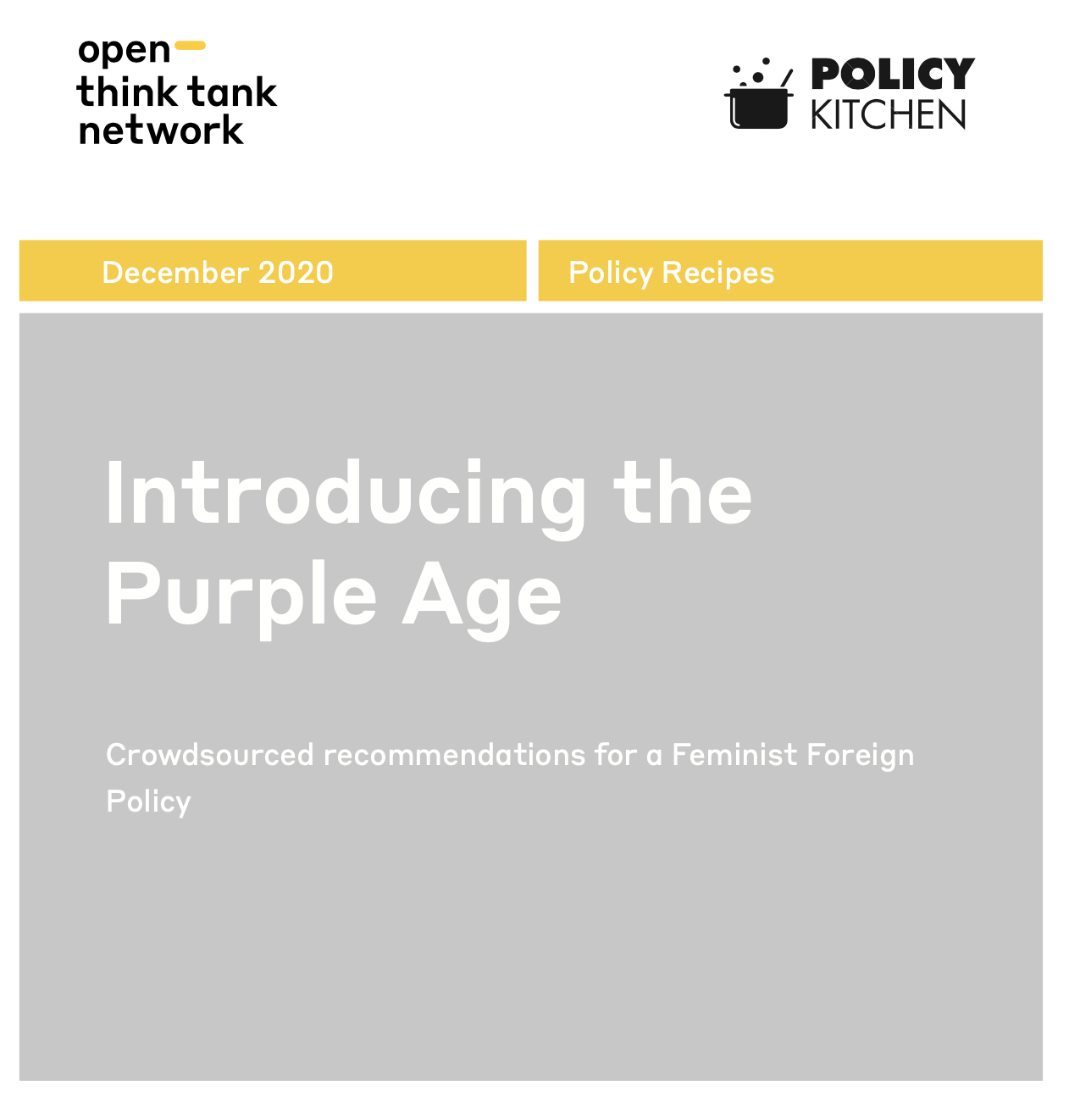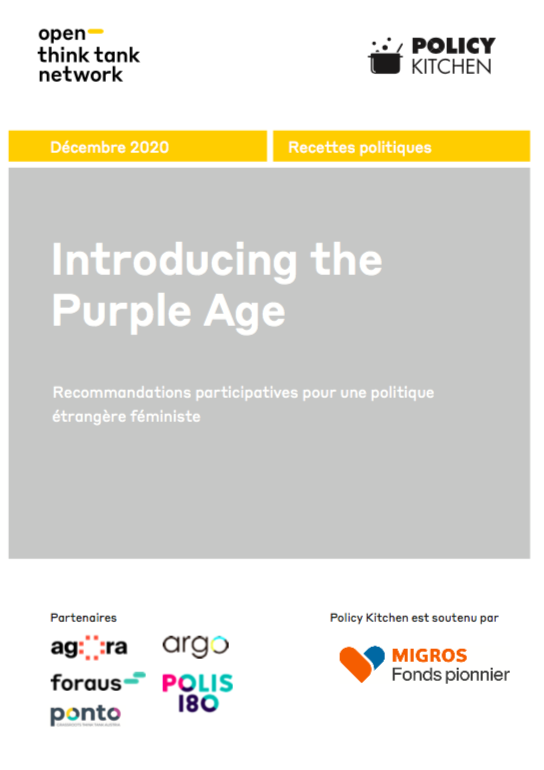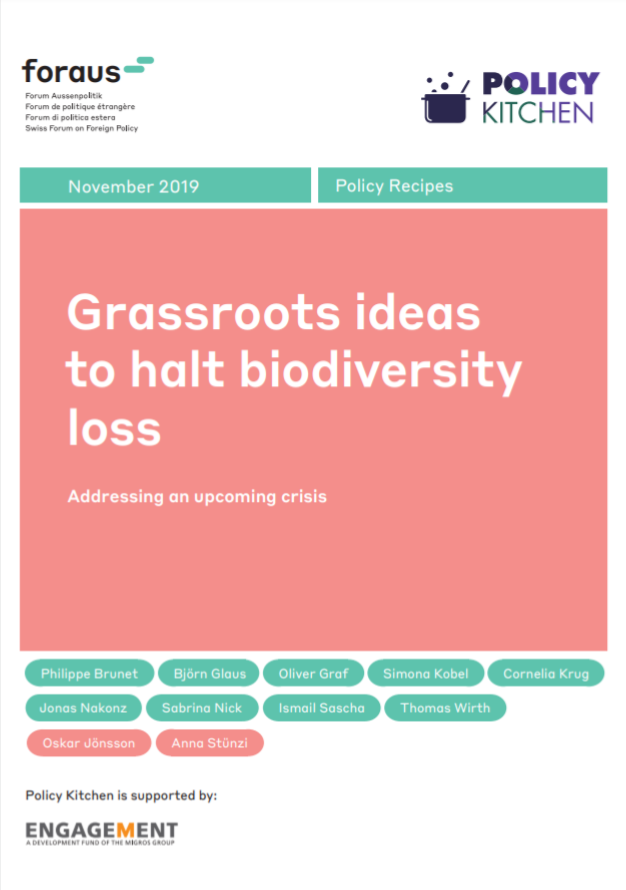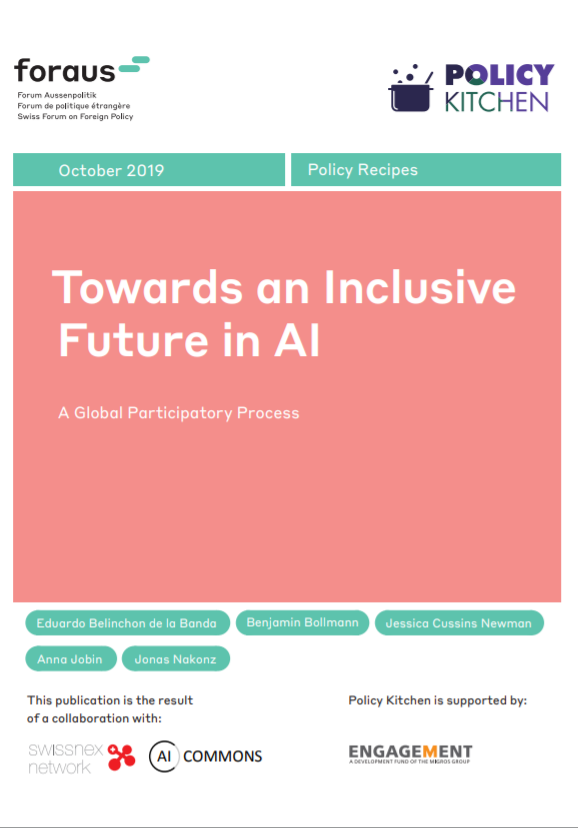Jonas Nakonz war Senior Project Manager bei foraus. Zwischen 2015 und 2022 leitete er einige der Vorzeigeprojekte von foraus in den Bereichen Politikdialog und politische Partizipation, darunter PoliTisch und Policy Kitchen. Jetzt arbeitet er als unabhängiger Mediator, Moderator und Coach.
Publications by Jonas Nakonz

This report presents the output of a transnational participatory process – Policy Kitchen – organized and implemented by the Open Think Tank Network and dedicated to the question: What should a feminist foreign policy look like in the 2020s? This bottom-up process with over 200 participants from five continents has generated a wealth of relevant policy recommendations for decision-makers in international affairs. The recommendations for a comprehensive feminist foreign policy (FFP) are presented in five thematic chapters, which emerged during the process:
- Intersectionality and Representation
- Health, Safety and Autonomy
- Environment and Climate Change
- Peace and Security
- The Economic Sphere

Ce rapport présente les résultats d’un processus participatif transnational – mené via notre plateforme en ligne Policy Kitchen – organisé et mis en œuvre par l’Open Think Tank Network et consacré à la question suivante : à quoi devrait ressembler une politique étrangère féministe dans les années 2020 ? Ce processus « bottom-up », qui a rassemblé plus de 200 participant·e·s des cinq continents, a généré une multitude de recommandations politiques pertinentes pour les décideur·euse·s du monde des affaires internationales. Les recommandations pour une politique étrangère féministe (PEF) globale sont présentées dans cinq chapitres thématiques qui ont émergé au cours du processus :
- Intersectionnalité et représentation
- Santé, sécurité et autonomie
- Environnement et changement climatique
- Paix et sécurité
- Sphère économique

Biodiversity is in a desolate state. In their first report released in May 2019, the Intergovernmental Science-Policy Platform on Biodiversity and Ecosystem Services (IPBES) finds that biodiversity is declining at rates faster than at any time in human history, threatening ecosystem functions critical to human survival and wellbeing. While the report is novel in terms of its scope and multilateral backing, the overall trends were long known, yet largely outside of the awareness of society. That’s why, in autumn 2018, foraus set out to crowdsource innovative ideas on how to tackle the biodiversity crisis through a newly developed online policy innovation tool: Policy Kitchen. Together with experts, foraus defined three challenges with a link to foreign policy, in which action is particularly needed: How to square biodiversity conservation and economic development? How to make trade more biodiversity-friendly? And how to improve global governance around biodiversity conservation? foraus discussed these questions with over 100 participants from various backgrounds. The process resulted in 43 ideas on biodiversity conservation, four of which were developed further and are presented in this publication.

In response to the accelerating potential of artificial intelligence (AI) to transform our lives, various governments, multilateral bodies, and other organizations have produced highlevel principles and guidelines for the ethical use of AI in recent years. Despite the staggering number of such documents (over 90 by October 2019), there appears to be a relatively high degree of convergence on the level of principles. «Inclusiveness» is one of just a handful of principles that most actors seem to agree upon. However, a closer look reveals that the principle is interpreted very differently in terms of the domain, scope and actors it pertains to. To respond to this gap, the swissnex Network, foraus, and AI Commons launched the global campaign «Towards an Inclusive Future in AI» with foraus’ new Policy Kitchen methodology. This joint experiment resulted in 11 workshops in 8 countries, involving 10 partner organizations and about 120 participants from a wide range of perspectives, who collaboratively generated 43 ideas for an inclusive future in AI. This paper presents the in-depth exploration of ideas and proposals on inclusion collected during this participatory process.









